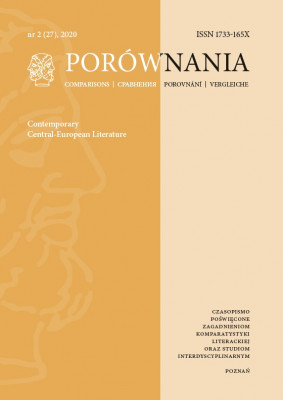1956, 1968, 1981: The Faces of Central-European Memory: A Postcolonial Perspective
This article deals with two issues. The first concerns the problem of collective memory of the past, which is divided here into shared memory, separate memory and non-memory. Shared memory plays a lesser role in Central Europe than separate memory, the latter being the core of national and social identity. Shared memory is an unattainable ideal proposed by some politicians and cultural researchers. A significant role is played by non-memory, which temporarily annihilates difficult matters related to the past. History vies with collective memory in Central Europe as a means of preserving the past. This is the result of centuries-old conflicts, changing political systems, shifting borders and, above all, many nations losing their sovereignty. This situation made the problem of domination and subordination a fundamental problem of history and collective memory.
For this reason, the second part of the article focuses on the postcolonial aspects of collective memory, and in particular on its relation to the events of 1956, 1968, and 1981 connected with the military reaction of the communist system to attempts at reform. These events, with all their historical differences, are caused by external violence (1956, 1968) or by internal violence caused by external pressure (1981). Central European societies also shape mutual relations through their attitudes to selected elements of the past. The author of the article depicts the inconspicuous aspects of shared internal and international memory by means of an analysis of four aspects: ressentiment, unremembering, historical politics and aesthetisation.
An analysis of the events that took place in 1956, 1968, and 1981 in the context of these four aspects of postcolonial memory reveals the fragile (moderately strong) existence of common areas. These areas are dominated by non-memory and separate memory, which deform historical realities. This proves that it is difficult for Central European societies to move beyond slogans and general declarations. True shared memory is the task for the future.
| Article Title | Type | Size |
|---|---|---|
| 02 Bakula | [pdf] | [205 KB] |
